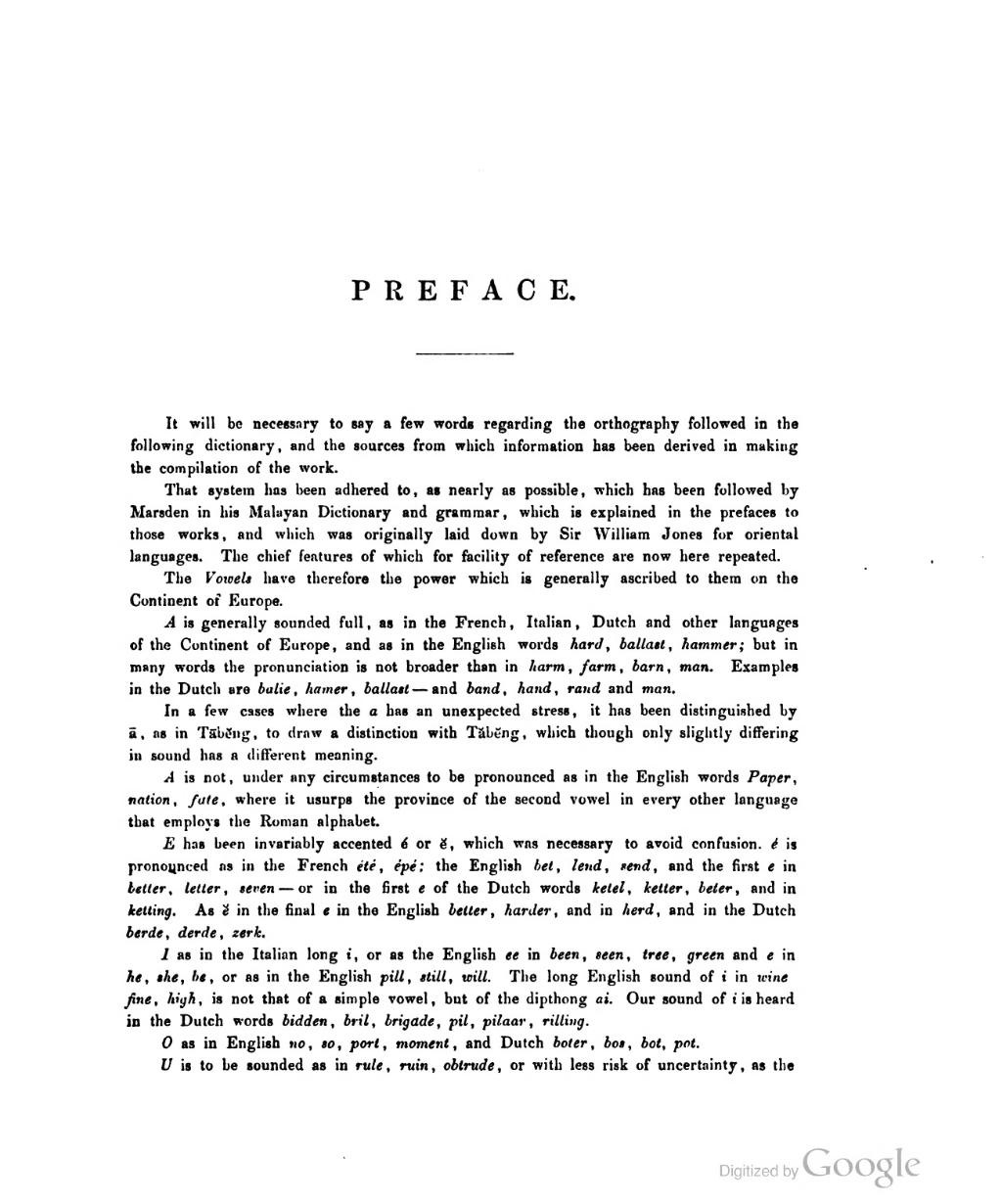PREFACE.
It will be necessary to say a few words regarding the orthography followed in the following dictionary, and the sources from which information has been derived in making the compilation of the work.
That system has been adhered to, as nearly as possible, which has been followed by Marsden in his Malayan Dictionary and Grammar, which is explained in the prefaces to those works, and which was originally laid down by Sir William Jones for oriental languages. The chief features of which for facility of reference are now here repeated.
The Vowels have therefore the power which is generally ascribed to them on the Continent of Europe.
A is generally sounded full, as in French, Italian, Dutch and other languages of the Continent of Europe, and as in the English words hard, ballast, hammer; but in many words the pronunciation is not broader than in harm, farm, barn, man. Examples in the Dutch are balie, hamer, ballast—and band, hand, rand and man.
In a few cases where the a has an unexpected stress, it has been distinguished by ā, as in Tābĕng, to draw a distinction with Tăbĕng, which though only slightly differing in sound has a different meaning.
A is not, under any circumstances to be pronounced as in the English words Paper, nation, fate, where it usurps the province of the second vowel in every other language that employs the Roman alphabet.
E has been invariably accented é or ĕ, which was necessary to avoid confusion. é is pronounced as in French été, épé; the English bet, lead, send, and the first e in better, letter, seven—or in the first e of the Dutch words ketel, ketter, beler, and in ketting. As ĕ in the final e in the English better, harder, and in herd, and in the Dutch words berde, derde, zerk.
I as in the Italian long i, or as the English ee in been, seen, tree, green, and e in he, she, be, or in the English pill, still, will. The long English sound of i in wine, fine, high, is not that of a simple vowel, but of diphthong ai. Our sound of i is heard in the Dutch words bidden, bril, brigade, pil, pilaar, rilling.
O as in English no, so, port, moment, and Dutch boter, bos, bot, pot.
U is to be sounded as in rule, ruin, obtrude, or with less risk of uncertainly, as the
